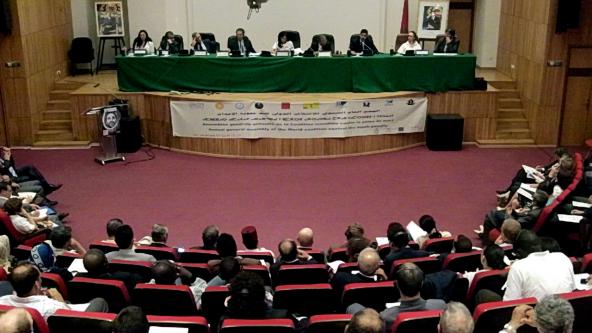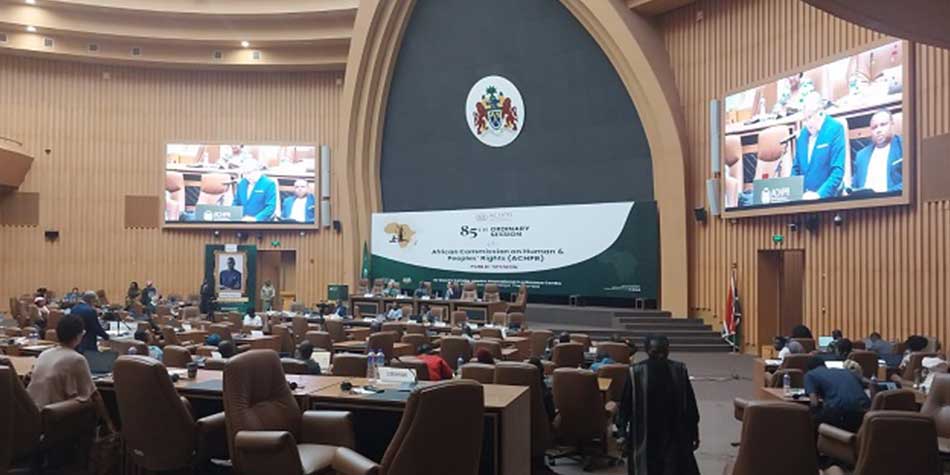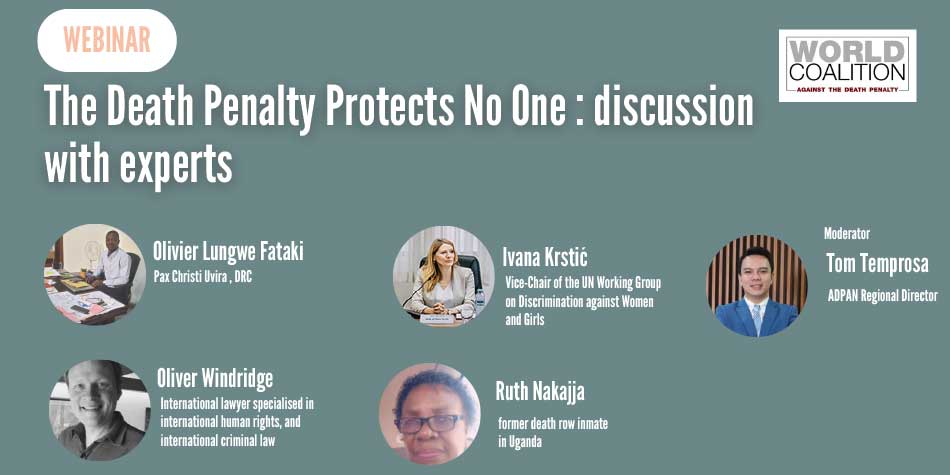
Arab spring at the heart of World Coalition debates
MENA
The World Coalition Against the Death Penalty’s AGM began on June 24 in Rabat with an opening ceremony during which the Moroccan government committed itself to the « gradual abolition » of capital punishment.
Abolitionists from around the world met in Morocco Friday evening to open an annual general meeting centered on the Arab World. The event is taking place at the judiciary’s training college in Rabat, at the invitation of the Ministry of Justice.
Around 200 people attended the opening ceremony and listened to Abderrahim Jamai of the Moroccan Coalition to Abolish the Death Penalty, who insisted that the continued handing down of death sentences by Moroccan courts has not led to a decrease in crime in the country.
“The State has failed in addressing the issues of the right to life and the abolition of the death penalty”, Jamai said. He referred to the draft new constitution currently under discussion, which protects the right to life but fails to mention abolition despite requests from “human rights activists, trade unions, many political leaders, artists, media professionals and a section of public opinion”.
Reform of the Moroccan Penal Code
Jamai called on the government to turn its attention the ongoing reform of the Penal Code to introduce abolition.
The Ministry of Justice’s director for penal affairs Mohamed Abdennabaoui replied that “the government’s position has been consistent and supports gradual abolition” since an official forum on this issue was held in 2004.
Abdennabaoui said that no execution has taken place in 18 years in Morocco and that the number of capital crimes had been cut by two-thirds in national law over the same period. He added that according to the proposed new Penal Code, death sentences would only be passed if all judges on a court panel agree.
The official gave official figures on the death penalty in Morocco: 103 prisoners are on death row, including two women, and around 10 death sentences are passed every year.
Abdennabaoui stated his personal preference for abolition and said: “We are expecting a new start from the new constitution, which states in article 20 that the right to life is the first of all rights.”
“Abolition, not cosmetic change”
“We don’t want cosmetic change. What we want is abolition,” said Tagreed Jaber, Penal Reform International’s regional director for Middle east and North Africa.
er remark took a particular meaning in Morocco, where the draft new constitution protects the “right to life”, but doesn’t go any further.
“This is not enough for abolitionists. That article doesn’t ban the death penalty, contrary to other constitutions or the international protocol,” said Mostafa Znaidi of the Moroccan Coalition Against the Death Penalty.
Jaber underlined the positive and negative aspects associated with the protest movements under way in the region in relation to the abolition of the death penalty.
Halem Chabouni of the Tunisian Coalition said that his organisation had recovered its freedom to exist after it being banned by the Ben Ali government. Nobody has called for the death penalty for the ex-president so far, but he still considers that option as a risk.
Most participants, however, are optimistic about the effect of the Arab Spring on the death penalty. Montassir Sakhi, a Moroccan blogger and activist who has been taking part in the February 20 Movement, said that the online networks created during the protests could help push for abolition in the near future.
1,145 people officially on death row in Iraq – many more in reality
Yet in some Arab countries, the trend is far from pointing towards abolition. Nasser Abood of the Iraqi Coalition said that his country moved from the Saddam Hussein regime, which used multiple laws to impose the death penalty on its people, to the current government, which uses anti-terrorism legislation to sentence thousands of people to death.
Although a recent report by the Iraqi ministry of human rights stated that 1145 people were on death row, Abood estimates the real figure to be several times higher.
The public section of the World Coalition’s AGM ended with a debate on the inhumanity of the death penalty, which will be the theme of this year’s World Day Against the Death Penalty on October 10.
Rosalyn Park of The Advocates for Human Rights, Bernadette Jung of FIACAT and Essadia Belmit of the UN Committe Against Torture discussed the overlaps between the death penalty and inhuman treatments in international law.
The Rabat general meeting is continuing on Sunday with the World Coalition’s statutory meeting and training workshops for its members.







